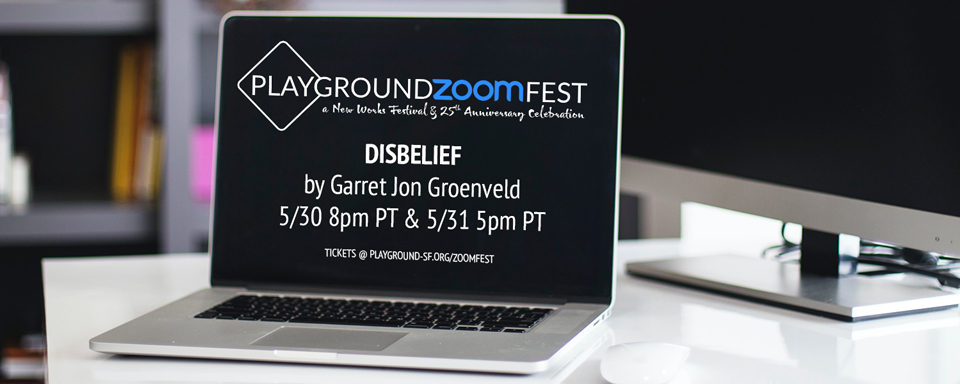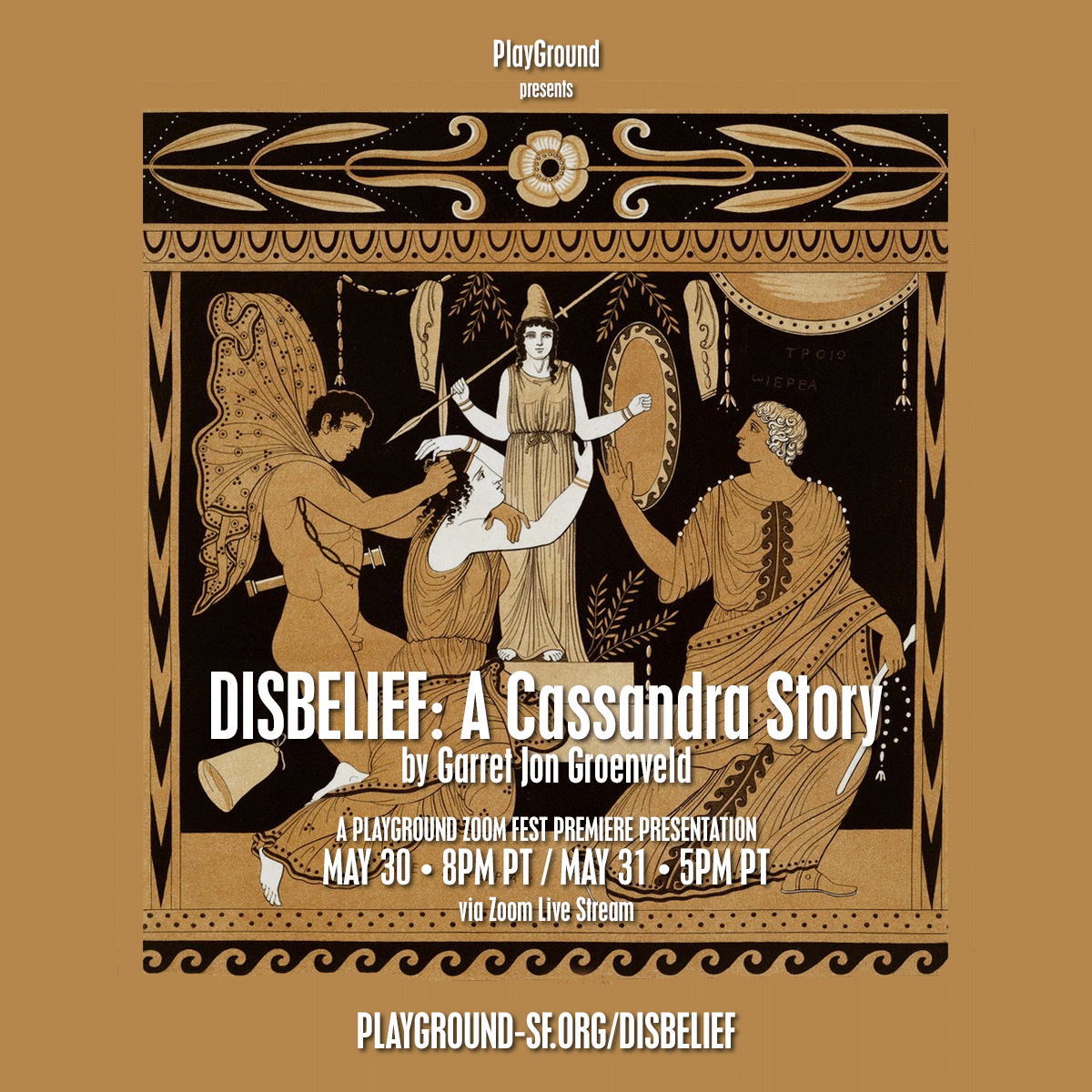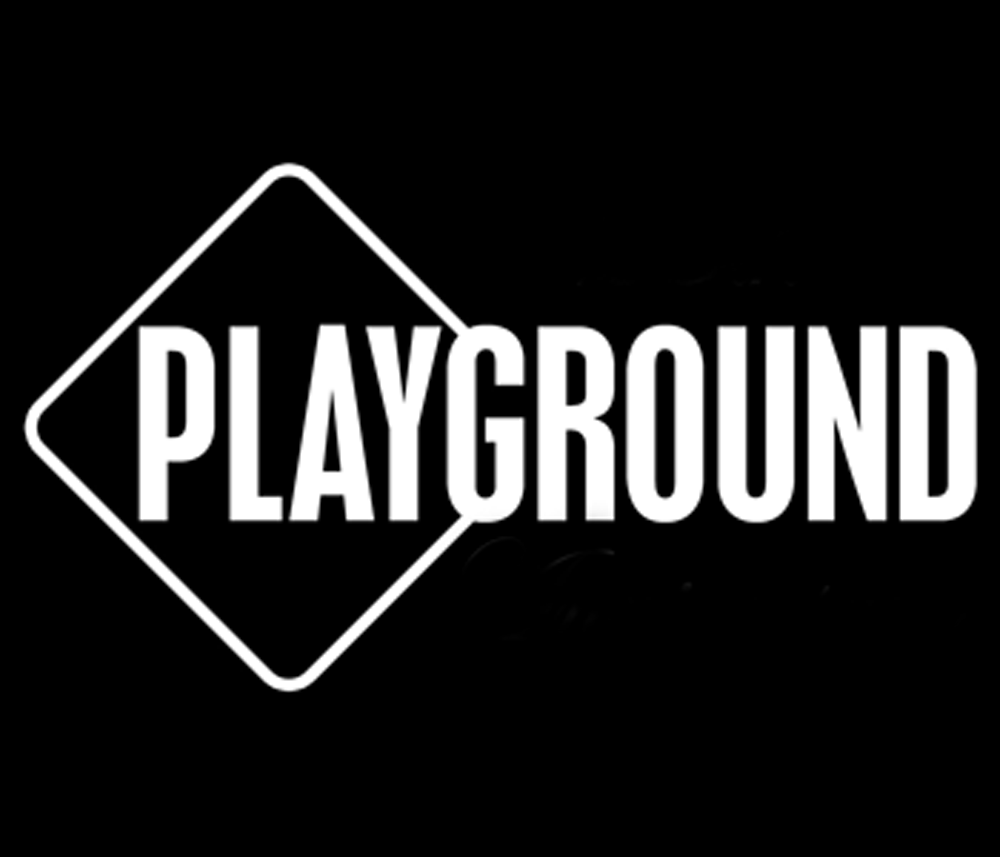Premiering a Play in the Digital Age
 Landing a full-length commission of a brand new play is one of the toughest things a playwright can do, and also one of the most exhilarating. It often takes years to a decade of development before a play has grown from its seed of an idea into a full-bloomed script ready for official debut before an audience. The play is still very much a living document, even as it travels into the rehearsal room to prepare for performance, and often will continue shifting and clarifying its focus as discoveries are made. The process is both highly public and intimately personal for the playwright. The anticipation of an audience finally seeing the most-polished version of the work to date drives producers to make more precise artistic decisions and to rely on enthusiastic collaboration to coax the world of the play from the page to the stage.
Landing a full-length commission of a brand new play is one of the toughest things a playwright can do, and also one of the most exhilarating. It often takes years to a decade of development before a play has grown from its seed of an idea into a full-bloomed script ready for official debut before an audience. The play is still very much a living document, even as it travels into the rehearsal room to prepare for performance, and often will continue shifting and clarifying its focus as discoveries are made. The process is both highly public and intimately personal for the playwright. The anticipation of an audience finally seeing the most-polished version of the work to date drives producers to make more precise artistic decisions and to rely on enthusiastic collaboration to coax the world of the play from the page to the stage.
It takes many artists to bring a script to life during a traditional PlayGround Festival premiere: directors, actors, stage managers, lighting designers, scenic designers, costume designers, sound designers, technical operators, space management, audience assistance, box office, etc. When the COVID-19 pandemic hit and shelter-in-place was indefinitely announced, most of these artists were almost instantly unemployed: as theaters shifted to producing online content, most companies were still forced to release or furlough most of their artistic contracts. The PlayGround Zoom Fest is committed to sustaining opportunities for artistic collaboration and artist employment while fostering innovation within the form of Zoom theater production. While the three fully-produced Zoom Fest premiere presentations do not attempt to replace live in-person theatre, they offer a unique experiment, a look into ways in which we can continue to create, to evolve and to connect, even when remaining physically distant, helping combine the best of live-stream media with the power of live theatre.
A founding playwright with PlayGround since early 1995 when he was a grad student at SFSU (when PG was still in residence there), Garret Groenveld has contributed the first of our three Zoom Fest premieres, his Disbelief: a Cassandra Tale, a lyrical (and timely) #MeToo-inspired update to the Cassandra myth! Since helping found PlayGround, Garret has had his short plays recognized in 7 Best of PlayGrounds (tied only with longtime PlayGrounder Aaron Loeb!), received several full-length commissions, and had several of his plays developed in the festival. He received the first ever PlayGround Fellowship (2002) for which he adapted his ten-minute play, Missive, and created Missives. It was subsequently premiered by Theatre Rhino and then had its NYC premiere in a PlayGround co-production in 2008. Another of his full-length plays, The Empty Nesters, was featured in the PG Festival a few years back and went on to have commercial runs in SF and Los Angeles. We connected with Garret digitally to ask about the current climate of play production, what inspired Disbelief, and how he is coping during shelter-in-place.
How long have you been a writer with PlayGround?
I am a founding writer with PlayGround — started when PlayGround launched at San Francisco State University — and had a play in the very second PlayGround. So 25, 26 years? Now I feel old.
How has PlayGround helped you as a playwright?
It didn’t teach me how to do it exactly, but it did give me a LOT of practice. I came from poetry — we talk about the ear in poetry — searching for what sounds right. I was used to writing something quickly, but writing a short play and having actors say it almost right away, really trained my ear for theatre, for what actors are able to say and audiences are able to hear.
What is another favorite play you have written?
I have a lot of favorites. My heart play is Missives which was the first PlayGround Commission – and went on to several productions, including at the old Theatre Rhino space on 16th Street in the Mission. My play, The Hummingbirds, has had the most productions and the most commercial interest. That one has yet to have a US production, but gets done regularly by a phenomenal actor in Romania. I also can’t forget The Empty Nesters — what a wonderful show and experience.
How long have you been developing Disbelief?
I first did the story as a 10-minute for a PlayGround Benefit and developed the first draft of the full-length for the first Olympians Theatre Festival at the Exit Theatre. My assigned ‘god’ in the pantheon was Apollo, but the play was really about Cassandra. We used Nora el Samahy who stars in this Zoom Production and Tracy Ward directed it, as she does with this production. But the play never quite worked 100% and I set it aside in the drawer. Then after the election in 2016, I thought of the parallels between Mrs. Clinton and Cassandra — a woman who told the truth who, even when she was proven to be true, was not believed. And in the Fall of 2017, I went on a retreat with the Flamingos, an all women’s writers group (of whom I am an honorary member) and really added a lot of the elements that made this sing. This was also at the start of the #MeToo movement and it really helped shape the story of showing how we systemically dis-empower women and disbelieve them. The previous title was The (Bad) Gift; and in this time, the title of Disbelief came forward because it is also about belief in the spiritual sense, or lack thereof. We had a reading with PlayGround in 2018 and here we are. Little did we know that the play would be even more timely now — in the age of not fake “fake news” — when we need to believe in leaders: the idea of who you put your faith into is really something that needs to be explored and this play does it.
What inspired Disbelief?
I’ve always been fascinated with updating and re-contextualizing the myths we tell ourselves. I had been to the Hesse Collection Gallery in Napa and seen a sculpture of a woman seemingly struggling on the floor with a swarm around her head. That image made me look into the story of Cassandra and I thought it would be a great lens to look at the Oresteia. Who says Paris has to be the center when you tell it — or Achilles — or any of the men. In most of the classical tellings of the stories, there is only one woman. Why not have the women talk to each other. The Oresteia is the story of war and battles. As a feminist, I wanted to tell the other story of wars: what happens after the battles — rapes and pillaging and destruction. Why not tell that story too?
Has the script changed during the rehearsal process? How?
It has certainly refined since our reading in 2018. It was in good shape, but we did a workshop in April of this year and really worked out some of the motivations of why the story is happening now.
What excites you about this Zoom Fest premiere?
So many things! First of all, I’m so excited for an audience to see and hear the script — but also for the wonderful cast that have been giving their all to this. Particularly I think, the audience is going to fall in love with Nora el Samahy as Cassandra — she’s remarkable. They’re off-book, just like live theatre — no looking down at the script. We’ve also added some unique production elements. These are not your standard Zoom backgrounds, we’re using green screens and the virtual backdrops by Randy Wong-Westbrooke are absolutely stunning. The whole team has come together to make this a special experience, with sound design, puppetry, and costumes. And what a joy to work with long-time collaborator Tracy Ward, who is so smart and the perfect director to tackle this complicated process with.
It’s also something we can do. When we’re told we can’t do the thing we love to do — which is theatre — we decided to go ahead and do it anyways, in a way we could. It won’t be the same as being in a theatre, but it will be its own thing and this play speaks to our time even more now.
What do you want audiences to know about Disbelief?
I think an audience can just walk in and enjoy it. You don’t need to know all about the Trojan War or Cassandra or the Greek Gods. We fill in the gaps along the way and lead you through the story. If you happen to know a lot about these things, you’ll enjoy seeing it from a very different perspective this time.
What has been your favorite coping/soothing activity during shelter-in-place?
I’ve been doing some of the other things that people have been doing, like getting to those “someday” projects around my apartment. And reading. But I’ve been busy with rehearsals for this and a few other projects as well. And taking naps, lovely delicious long naps. But, I’m looking to finish a few writing projects and starting a new piece in the next few weeks, after I get some rest from this.
What have you enjoyed about digital theater?
I have enjoyed seeing some plays I’ve missed, really enjoyed the stuff Campo Santos has been showing. Love those artists. I’ve also been attending a lot of drag shows online and supporting my friends in that community. Their artistry has been really stretched and creativity in engaging with technology has been impressive.
What do you miss about theater in person?
Isn’t it one of the loveliest things to be in a room with the rest of an audience and take a breath as the lights go down and await what so many people have put hours and in some cases, years of time into. To hear someone next to you laugh, or sigh. We’ll get back and we’ll treasure it all the more when we can.
What is your next playwriting project?
I have a few two character plays I’m juggling — and a big Rube Goldberg conceptual piece that may never get done, but I think it’d be fantastic fun to write.
Anything else you want to say to audiences?
Until we can be together again in person, let’s be together online. Let’s support our actors and theatres — help keep them going — and the best way we can do that is to be an audience online (and donate if you are able).
Join us for the Zoom Debut of Disbelief: A Cassandra Story (May 30 8pm PT & May 31 5pm PT; on-demand option for registered guests) by reserving your tickets today at https://playground-sf.org/disbelief/ and be sure to take a look at the full schedule of our Zoom Fest content at https://playground-sf.org/zoomfest/.


April 7, 2022 at 12:10 pm
Laney actors return to the stage on April 13 - The Citizen